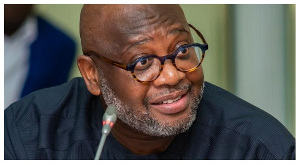Ho, Sept. 20, GNA - Pathfinder International, a Reproductive Health NGO, is working towards the establishment of youth friendly corners at health facilities in four districts of the Volta Region, as part of its five-year youth friendly services project.
This is to offer affordable, accessible and friendly sexual health services to the youth for them to make informed decisions about their sexuality.
Mrs Gertrude Ananse Baiden, Project Coordinator of Pathfinder International, stated this at a workshop, organised by the NGO for the media in Ho, on Adolescent Sexual Reproductive Health, at the weekend. She observed that family planning centres in health facilities in the country were largely not youth friendly and that the absence of youth friendly reproductive health facilities were to be blamed for the rising incidence of early teenage sexual experimentation leading to teenage pregnancy, unsafe abortion, sexually transmitted infections and child motherhood.
Quoting from 2003 Ghana Demographic Health Survey, Mrs Baiden said about 39 per cent of young women between the ages of 15 and 19 terminated their pregnancies yearly. Additionally, 57 per cent of active youth between the ages of 15 and 19 and 41 per cent of those from 20 years to 24 had unmet needs for family planning.
She said young people, as any other group of persons, had the right to quality reproductive health services and called for the provision of a package of quality information/counselling and a full complement of quality adolescent reproductive health services. Mr Moses Nanang, Reproductive Health Manager of Pathfinder International, encouraged parents and the media to help educate young people on adolescent reproductive health issues. He, however, urged the media to respect the rights of adolescents in their reproductive health reportage.
Mr Nanang said Pathfinder with assistance from the Ghana Health Service and the UNFPA trained 80 service providers and 148 youth peer educators and expressed the hope that such interventions would help adolescents to make responsible decisions on their sexuality.
Health News of Sunday, 20 September 2009
Source: GNA
















